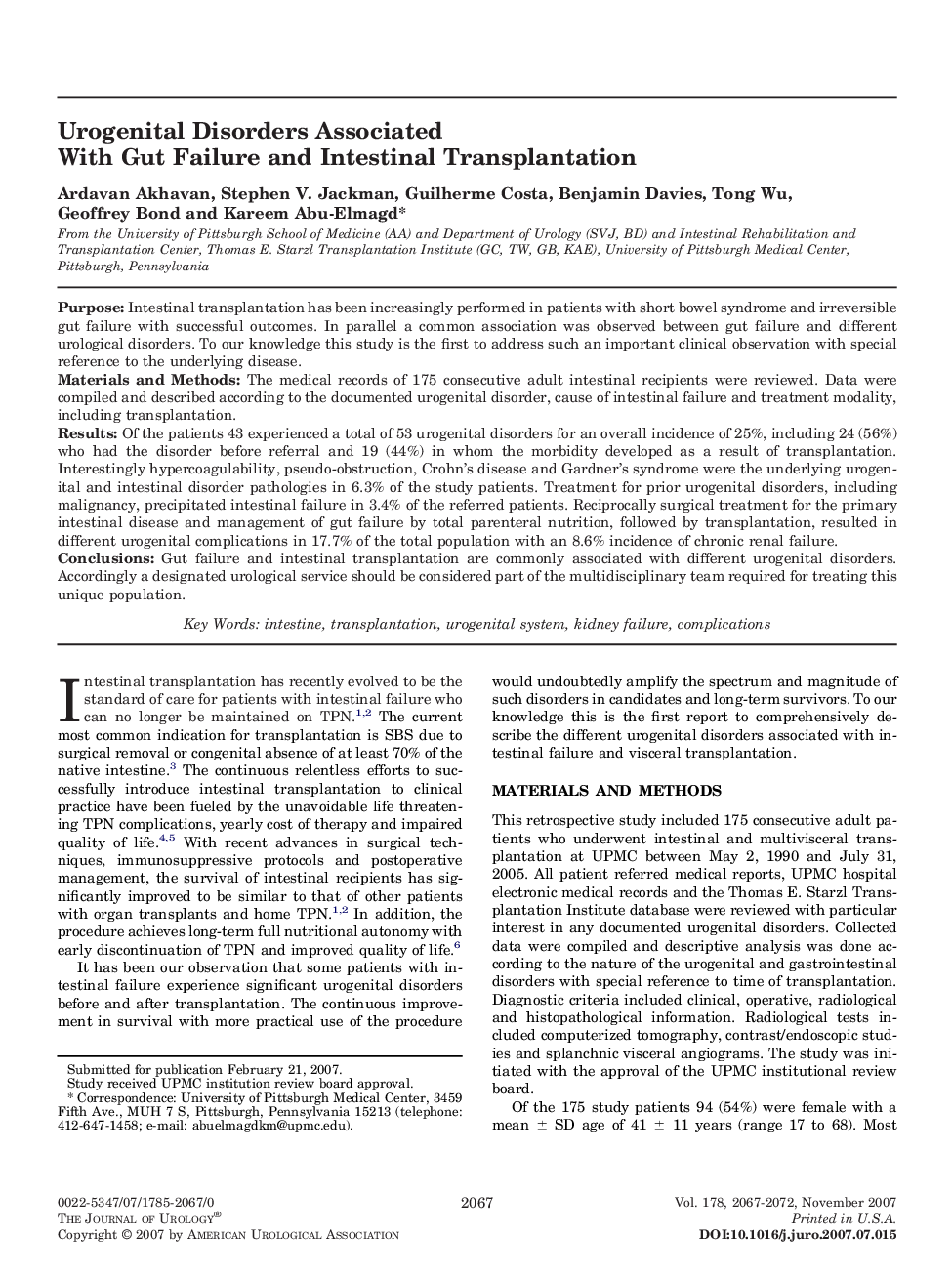| Article ID | Journal | Published Year | Pages | File Type |
|---|---|---|---|---|
| 3873279 | The Journal of Urology | 2007 | 6 Pages |
PurposeIntestinal transplantation has been increasingly performed in patients with short bowel syndrome and irreversible gut failure with successful outcomes. In parallel a common association was observed between gut failure and different urological disorders. To our knowledge this study is the first to address such an important clinical observation with special reference to the underlying disease.Materials and MethodsThe medical records of 175 consecutive adult intestinal recipients were reviewed. Data were compiled and described according to the documented urogenital disorder, cause of intestinal failure and treatment modality, including transplantation.ResultsOf the patients 43 experienced a total of 53 urogenital disorders for an overall incidence of 25%, including 24 (56%) who had the disorder before referral and 19 (44%) in whom the morbidity developed as a result of transplantation. Interestingly hypercoagulability, pseudo-obstruction, Crohn’s disease and Gardner’s syndrome were the underlying urogenital and intestinal disorder pathologies in 6.3% of the study patients. Treatment for prior urogenital disorders, including malignancy, precipitated intestinal failure in 3.4% of the referred patients. Reciprocally surgical treatment for the primary intestinal disease and management of gut failure by total parenteral nutrition, followed by transplantation, resulted in different urogenital complications in 17.7% of the total population with an 8.6% incidence of chronic renal failure.ConclusionsGut failure and intestinal transplantation are commonly associated with different urogenital disorders. Accordingly a designated urological service should be considered part of the multidisciplinary team required for treating this unique population.
